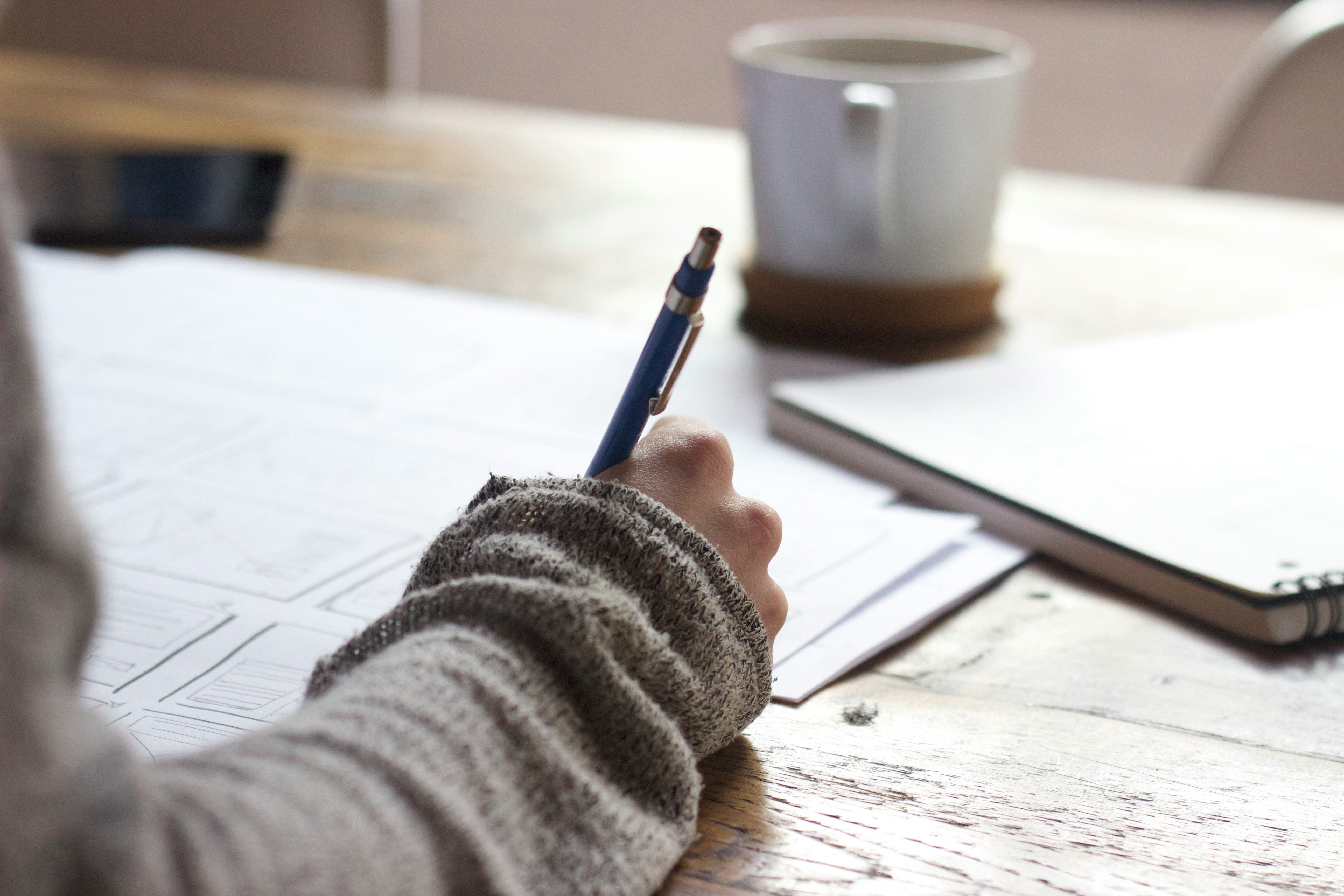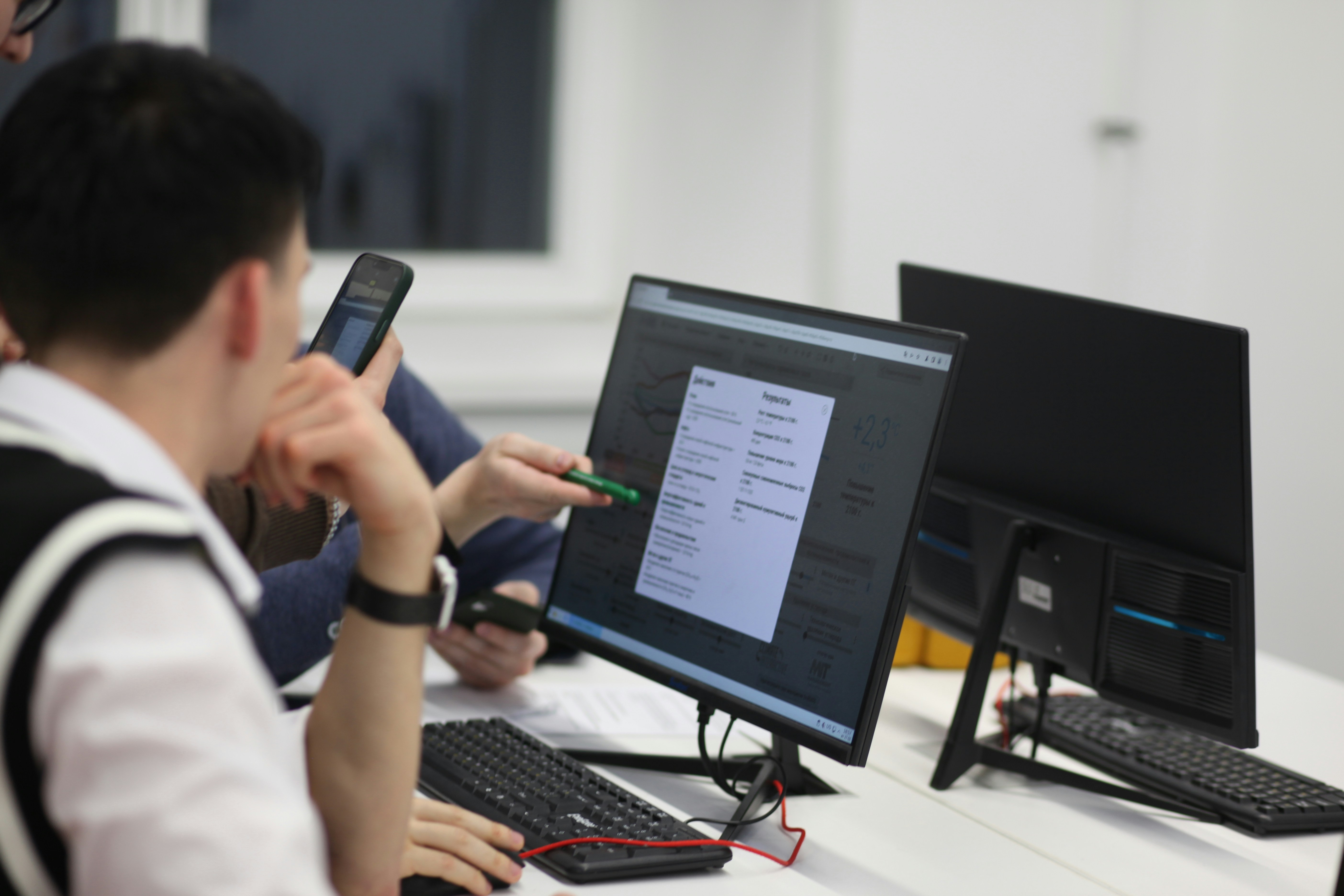Listen to this article
Study Skills
How can I get the most out of lessons?


Study Skills
How can I get the most out of lessons?


Study Skills
How can I get the most out of lessons?



Summary
Participating in lessons can require significant mental effort. Absorbing a high volume of information while taking notes and contributing ideas, can lead to cognitive overload and feeling overwhelmed.
Here are 5 tips to help you manage these challenges.
Prepare
Pause
Participate
Clarify
Review
Summary
Participating in lessons can require significant mental effort. Absorbing a high volume of information while taking notes and contributing ideas, can lead to cognitive overload and feeling overwhelmed.
Here are 5 tips to help you manage these challenges.
Prepare
Pause
Participate
Clarify
Review
Read this article
3m
Prepare
If you can, preview the upcoming lesson plan and materials. What is the main focus, and what do you need to achieve? Look for key terms in headings and summaries and if it needs to be clarified or you are unsure, ask your teacher or tutor. It can help to identify the most critical parts of the lesson beforehand so you can prioritise these during the lesson itself.
It can also help reduce stress levels if you have all your equipment ready before the lesson - a charged device, pens, notepads (or your preferred note-taking software), a drink and supplementary materials or reference books. If it's an in-person lesson, arrive with time to spare so you can find your seat, set up comfortably without rushing, and finally, turn up with a positive mindset. Changing your attitude as you approach challenging events can go a long way to alter your perception and reaction, making things feel more manageable.
Pause
The expectations of a lesson and joining a group setting can cause anxiety and overwhelm. Recognise and acknowledge these feelings, and remember that many of your peers will likely feel the same way, so you are not alone. Taking some deep breaths or trying a simple breathing exercise can help to reduce anxiety and improve focus. If you need it during the lesson and it is possible to do so, take short breaks to get up and stretch or close your eyes to refresh and reset yourself.
Participate
Active participation can be part of following a lesson effectively. This means being engaged by listening and taking notes. Your teacher or tutor may emphasise keywords and phrases, so listen out for them and pay attention to repeated ideas which are often important points.
You may prefer to handwrite your notes, but if you struggle to capture key information, you might want to try recording the session on your phone so you can listen to it later or try different note-taking methods like mind mapping. Finding a medium that works for you and that you feel comfortable and confident with is key.
During the lesson, focus on capturing the main ideas and essential details, highlighting these for easy reference when you review them later on.
Clarify
If you don’t understand something during the lesson or find it too intimidating to speak up in front of everyone, note it down to ask your teacher or tutor afterwards when there are fewer people around or email them. You can also look over the class resources or search for information online after the lesson. It can also help to ask a friend to remind you of points you may have missed.
Review
Going through your notes after the lesson will help reinforce what you have learned. Try to do this as soon as possible while everything is still fresh in your mind. Summarising what you have learned in your own words can help consolidate your understanding, as can discussing the material with your peers. By reflecting on your lesson like this, you retain the information better, making it easier to recall later on.
Read this article
3m
Prepare
If you can, preview the upcoming lesson plan and materials. What is the main focus, and what do you need to achieve? Look for key terms in headings and summaries and if it needs to be clarified or you are unsure, ask your teacher or tutor. It can help to identify the most critical parts of the lesson beforehand so you can prioritise these during the lesson itself.
It can also help reduce stress levels if you have all your equipment ready before the lesson - a charged device, pens, notepads (or your preferred note-taking software), a drink and supplementary materials or reference books. If it's an in-person lesson, arrive with time to spare so you can find your seat, set up comfortably without rushing, and finally, turn up with a positive mindset. Changing your attitude as you approach challenging events can go a long way to alter your perception and reaction, making things feel more manageable.
Pause
The expectations of a lesson and joining a group setting can cause anxiety and overwhelm. Recognise and acknowledge these feelings, and remember that many of your peers will likely feel the same way, so you are not alone. Taking some deep breaths or trying a simple breathing exercise can help to reduce anxiety and improve focus. If you need it during the lesson and it is possible to do so, take short breaks to get up and stretch or close your eyes to refresh and reset yourself.
Participate
Active participation can be part of following a lesson effectively. This means being engaged by listening and taking notes. Your teacher or tutor may emphasise keywords and phrases, so listen out for them and pay attention to repeated ideas which are often important points.
You may prefer to handwrite your notes, but if you struggle to capture key information, you might want to try recording the session on your phone so you can listen to it later or try different note-taking methods like mind mapping. Finding a medium that works for you and that you feel comfortable and confident with is key.
During the lesson, focus on capturing the main ideas and essential details, highlighting these for easy reference when you review them later on.
Clarify
If you don’t understand something during the lesson or find it too intimidating to speak up in front of everyone, note it down to ask your teacher or tutor afterwards when there are fewer people around or email them. You can also look over the class resources or search for information online after the lesson. It can also help to ask a friend to remind you of points you may have missed.
Review
Going through your notes after the lesson will help reinforce what you have learned. Try to do this as soon as possible while everything is still fresh in your mind. Summarising what you have learned in your own words can help consolidate your understanding, as can discussing the material with your peers. By reflecting on your lesson like this, you retain the information better, making it easier to recall later on.

Written by Natalie Bull

Written by Natalie Bull
0:00/1:34
Summary
Participating in lessons can require significant mental effort. Absorbing a high volume of information while taking notes and contributing ideas, can lead to cognitive overload and feeling overwhelmed.
Here are 5 tips to help you manage these challenges.
Prepare
Pause
Participate
Clarify
Review
Read this article
Participating in lessons can require significant mental effort. Absorbing a high volume of information while taking notes and contributing ideas, can lead to cognitive overload and feeling overwhelmed.
Here are 5 tips to help you manage these challenges.
Prepare
Pause
Participate
Clarify
Review
Prepare
If you can, preview the upcoming lesson plan and materials. What is the main focus, and what do you need to achieve? Look for key terms in headings and summaries and if it needs to be clarified or you are unsure, ask your teacher or tutor. It can help to identify the most critical parts of the lesson beforehand so you can prioritise these during the lesson itself.
It can also help reduce stress levels if you have all your equipment ready before the lesson - a charged device, pens, notepads (or your preferred note-taking software), a drink and supplementary materials or reference books. If it's an in-person lesson, arrive with time to spare so you can find your seat, set up comfortably without rushing, and finally, turn up with a positive mindset. Changing your attitude as you approach challenging events can go a long way to alter your perception and reaction, making things feel more manageable.
Pause
The expectations of a lesson and joining a group setting can cause anxiety and overwhelm. Recognise and acknowledge these feelings, and remember that many of your peers will likely feel the same way, so you are not alone. Taking some deep breaths or trying a simple breathing exercise can help to reduce anxiety and improve focus. If you need it during the lesson and it is possible to do so, take short breaks to get up and stretch or close your eyes to refresh and reset yourself.
Participate
Active participation can be part of following a lesson effectively. This means being engaged by listening and taking notes. Your teacher or tutor may emphasise keywords and phrases, so listen out for them and pay attention to repeated ideas which are often important points.
You may prefer to handwrite your notes, but if you struggle to capture key information, you might want to try recording the session on your phone so you can listen to it later or try different note-taking methods like mind mapping. Finding a medium that works for you and that you feel comfortable and confident with is key.
During the lesson, focus on capturing the main ideas and essential details, highlighting these for easy reference when you review them later on.
Clarify
If you don’t understand something during the lesson or find it too intimidating to speak up in front of everyone, note it down to ask your teacher or tutor afterwards when there are fewer people around or email them. You can also look over the class resources or search for information online after the lesson. It can also help to ask a friend to remind you of points you may have missed.
Review
Going through your notes after the lesson will help reinforce what you have learned. Try to do this as soon as possible while everything is still fresh in your mind. Summarising what you have learned in your own words can help consolidate your understanding, as can discussing the material with your peers. By reflecting on your lesson like this, you retain the information better, making it easier to recall later on.

Written by Natalie Bull
Nat is Booost Education’s copywriter and artist-in-residence and brings considerable authenticity to our marketing content through her own expertise and experience from supporting DSA students and her neurodivergent son.

Written by Natalie Bull
Nat is Booost Education’s copywriter and artist-in-residence and brings considerable authenticity to our marketing content through her own expertise and experience from supporting DSA students and her neurodivergent son.




